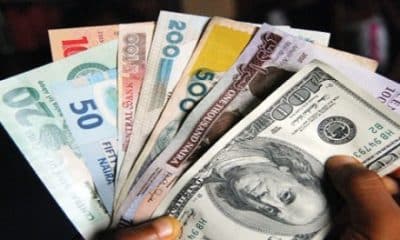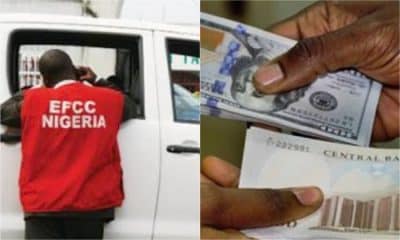Business
Investors Dump Nigerian Bonds Amid Downgrade Of Creditworthiness By Moody

Due to an unfavourable situation following moody’s downgrade of its long-term foreign-currency and local-currency issuer ratings, many investors have, without hesitation, dumped the Nigerian bonds, Naija News learnt.
There are fears that the latest development will raise the country’s cost of borrowing in the international capital market.
Analysts have expressed concerns that it could also trigger further downgrades of the country’s creditworthiness by other rating agencies.
According to Bloomberg, “Nigeria’s sovereign-risk premium jumped the most in three months on Monday after Moody’s Investors Service downgraded the country deeper into junk.
“The extra yield investors demand to own Nigeria’s dollar debt rather than treasuries widened 49 basis points to 780, according to JPMorgan Chase & Co. data.”
It reported that Nigeria’s 2032 bonds jumped 56 basis points to 12 per cent, also the most since October, stating that forward contracts on the currency traded 28 per cent weaker than the official rate on the one-year tenor.
The report showed that the latest moves threatened to send Nigeria’s credit spreads down to distressed territory, widely described as 1,000 basis points above Treasury yields as it battled slow growth, fiscal strain and a dollar squeeze.
Naija News understands that Moody, a global rating firm, recently downgraded Nigeria’s long-term foreign-currency and local-currency issuer ratings. In its latest assessment, the global rating agency also lowered Nigeria’s foreign currency senior unsecured debt ratings to Caa1 from B3 and changed the outlook to stable.
Moody’s said it has also lowered Nigeria’s foreign currency senior unsecured MTN programme rating to (P)Caa1 from (P)B3, saying today’s rating action concludes the review for downgrade initiated on 21 October 2022.
The rating firm showed an expectation that the government’s fiscal and debt position would continue to deteriorate was the main driver behind the rating downgrade.
It said, “The government faces wide-ranging fiscal pressure while the capacity to respond remains constrained by Nigeria’s long-standing institutional weaknesses and social challenges.”












